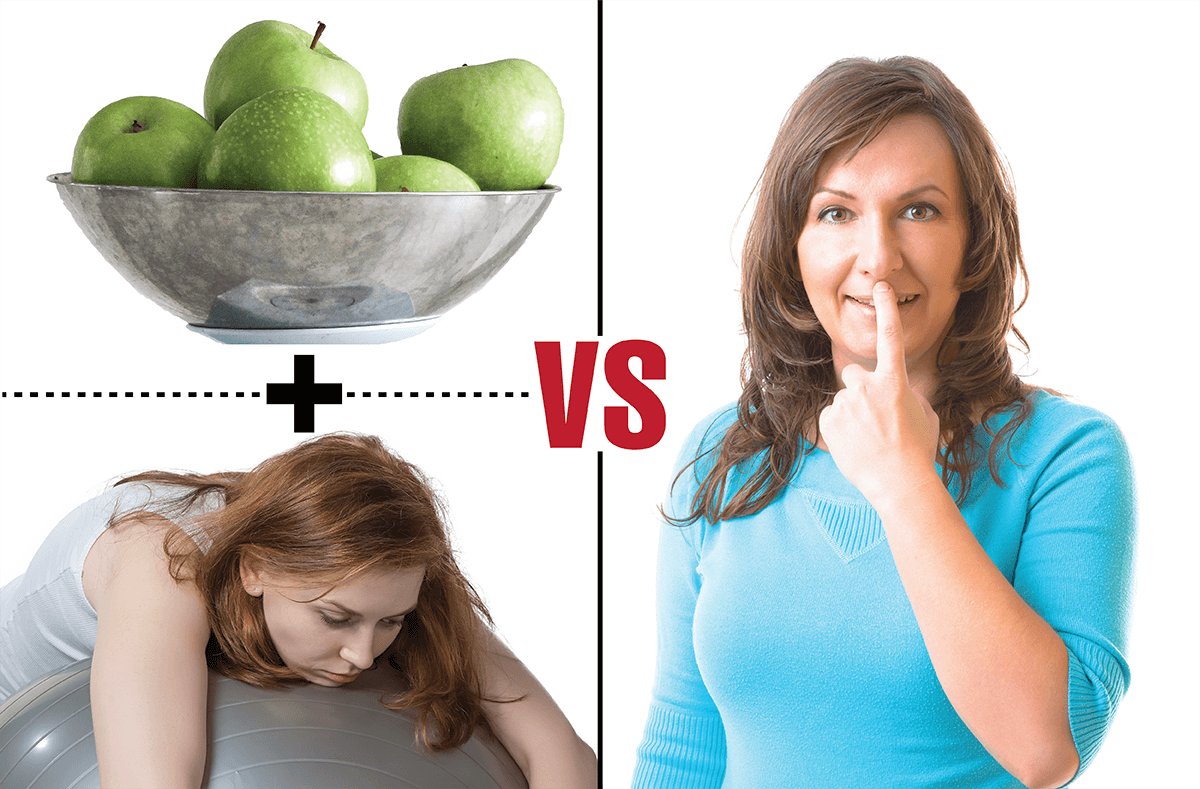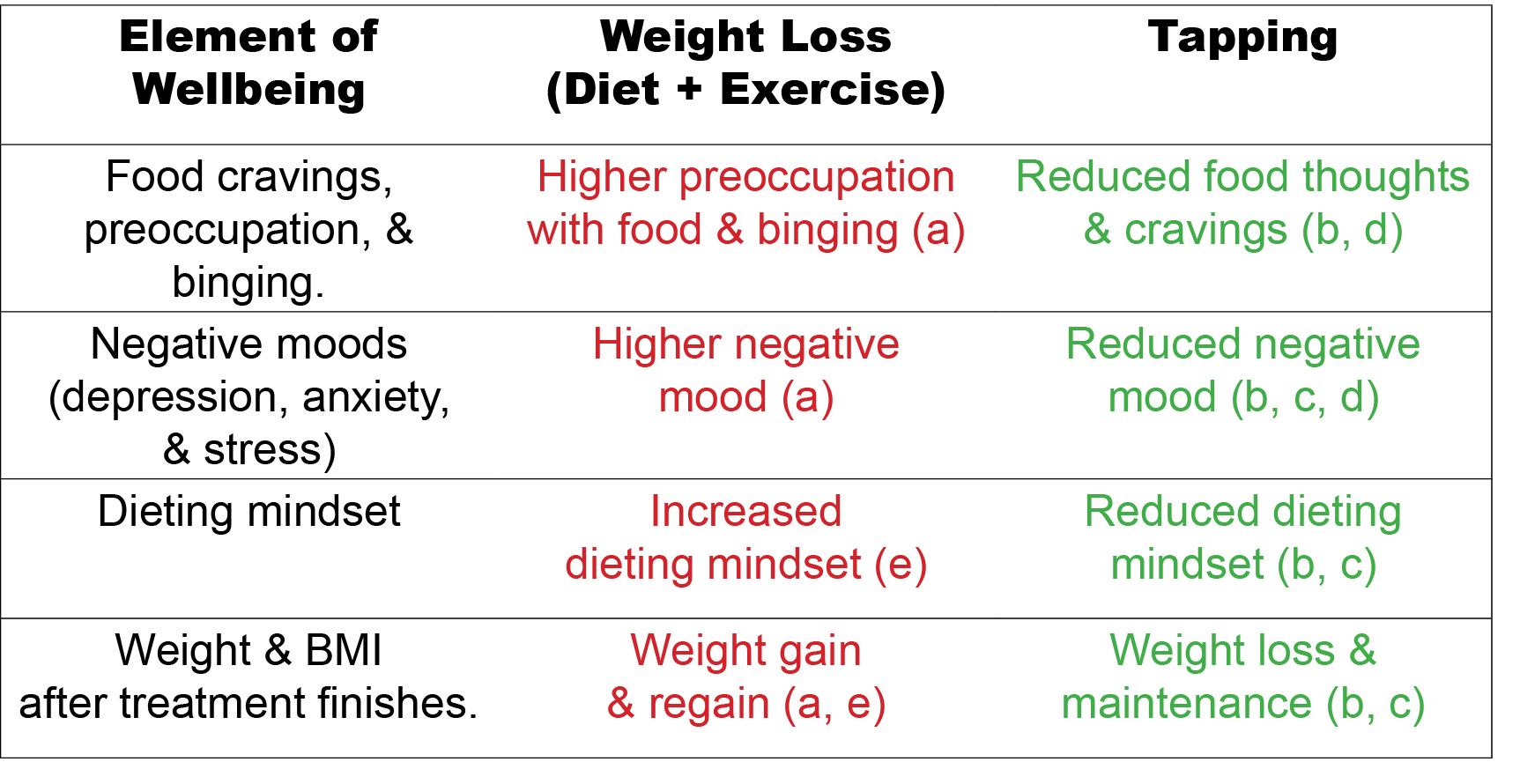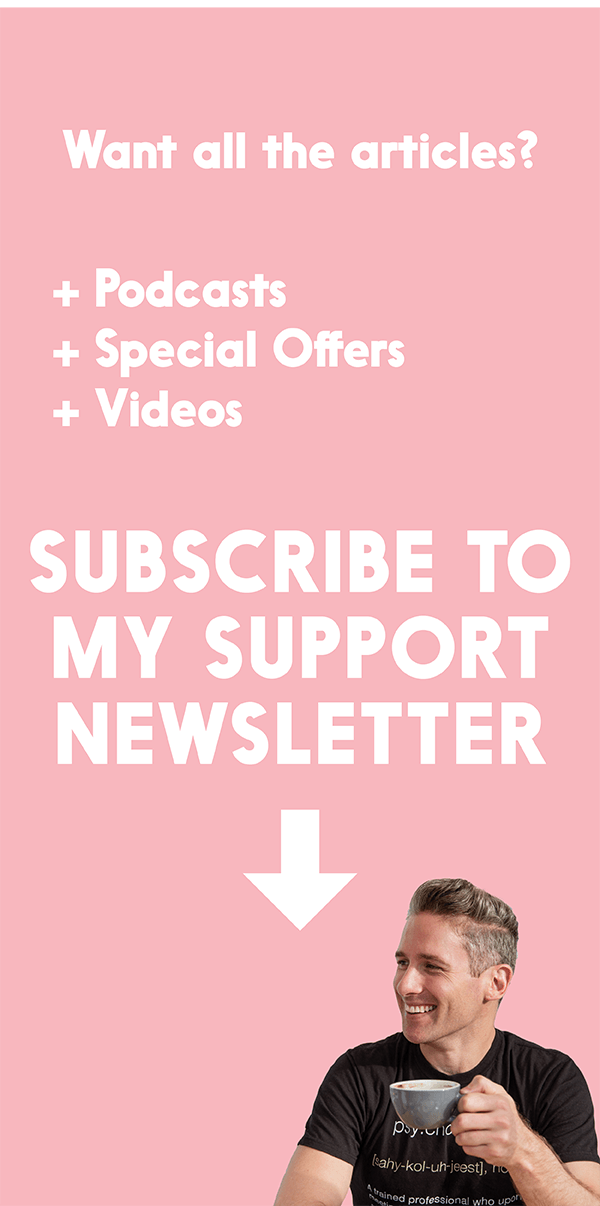
The earth is flat,
A little hole drilled in the head will cure your migraines…
And diet and exercise programs lead to permanent weight loss.
It’s not the first time the “experts” got it waaaayyyyy wrong.
While something completely “normal” like trying to lose weight though diet and exercise can be a waste of time at best (and harmful for you at worst), it is possible that something “alternative” like tapping* (which doesn’t even include a diet or exercise plan) is actually a better answer for you?
There is no doubt about it – good science shows tapping works. And follow up research shows it works at least as well as CBT** – the current “gold standard” (although you get the same results in half the time with tapping). But how does tapping weigh up against just doing “what you need to do to lose weight”? Wouldn’t you be better off to focus on simply eating better and getting more exercise?
I recently took you through a comparison of dieting vs intuitive eating and so many of you said you found it helpful that I wanted to do a similar thing with tapping. Most people don’t just watch what they eat when they try to lose weight, they exercise as well, so I compared research on the effects of weight loss plans that incorporate diet and exercise Vs tapping (which actually doesn’t focus on weight loss). I found this so fun to do, and I’m sure you’ll be as interested as I was with the results***:

So the next time you go to join another 12-week program, do the latest diet fad (did somebody say Keto?), or try one of the zillion eating + exercise weight loss plans out there, you may want to consider you’ll probably get a better result if you tap instead!
The world is round, we now have helpful ways of managing migraines, and tapping works.
Researchers are acknowledging it. And health professionals like me are flocking to it in droves. The question is:
When will you begin to realise the benefits of tapping for yourself?
I created this blog for people just like you.
If you found it valuable, please help me share it with them!
I’ll be back in the next few days with my new PODCAST where I interview the world-leading researcher on tapping for food and weight management Dr. Peta Stapleton (the one who wrote most of the tapping articles I’ve referenced here). We’re going to talk about what tapping is (she has a new way of explaining it that I love), the new science telling us why it works, and how to make the most out of the technique (it’s an AMAZING interview and I know you’re going to get so much out of it).
*For more info on tapping here is a video on the basics and one where world authority Dr Peta Stapleton takes you through the technique.
**This article was one of the top downloaded articles in the publication’s recent history – they sent a congratulations letting us know it had 726 downloads in 2017!
***In this short review I had to analyse and interpret data from various studies as no studies have directly compared diet and exercise with tapping. This makes sense as when new approaches are to be tested, they are often tested against the gold-standard, and despite diet and exercise programs being the most common approach for weight loss, they are not considered the gold standard. The studies below are all well conducted and published in peer-reviewed journals. Where possible I have favoured programs that include diet & exercise, focused on long-term results, and matched the elements of wellbeing across studies.
(a) Tylka, T., L., Calogero, R.M., & Danielsdorrir (2015). Is intuitive eating the same as flexible dietary control? Their links to each other and wellbeing could provide an answer. Appetite, 95, 166-175.
(b) Stapleton, P. B., Sheldon, T., & Porter., B. (2012). Clinical benefits of emotional freedom techniques on food cravings at 12-months follow up: A randomized controlled trial. Energy Psychology, 4(1), pp. 1 – 12
(c) Stapleton, P., Bannatyne, A, Urzi, K, Porter, B (2016) Food for Thought: A randomised controlled trial of emotional freedom techniques and cognitive behavioural therapy in the treatment of food cravings. Current Research in Psychology ISSN: 1758-0854
(d) Stapleton, P., Bannatyne, A., Chatwin, H., Urzi, K., Porter, B., & Sheldon, T. (2017). Secondary psychological outcomes in a controlled trial of Emotional Freedom Techniques and cognitive behaviour therapy in the treatment of food cravings. Complementary Therapies in Clinical Practice, (28), 136-145.
(e) Bacon, L., Stern, J. S., & Van Loan et. al. (2005) Size acceptance and intuitive eating improve health for obese, female chronic dieters. Journal of the American Dietetic Association (105), 929-936.




